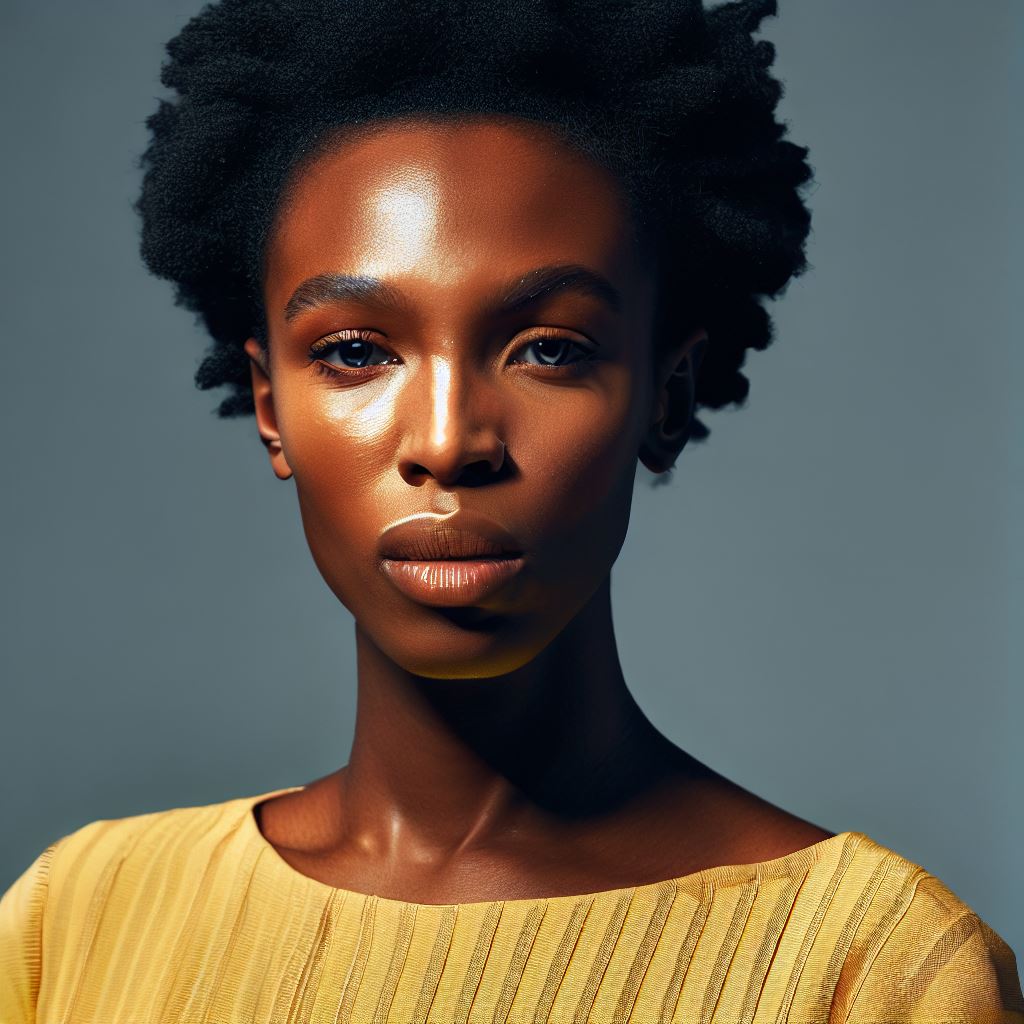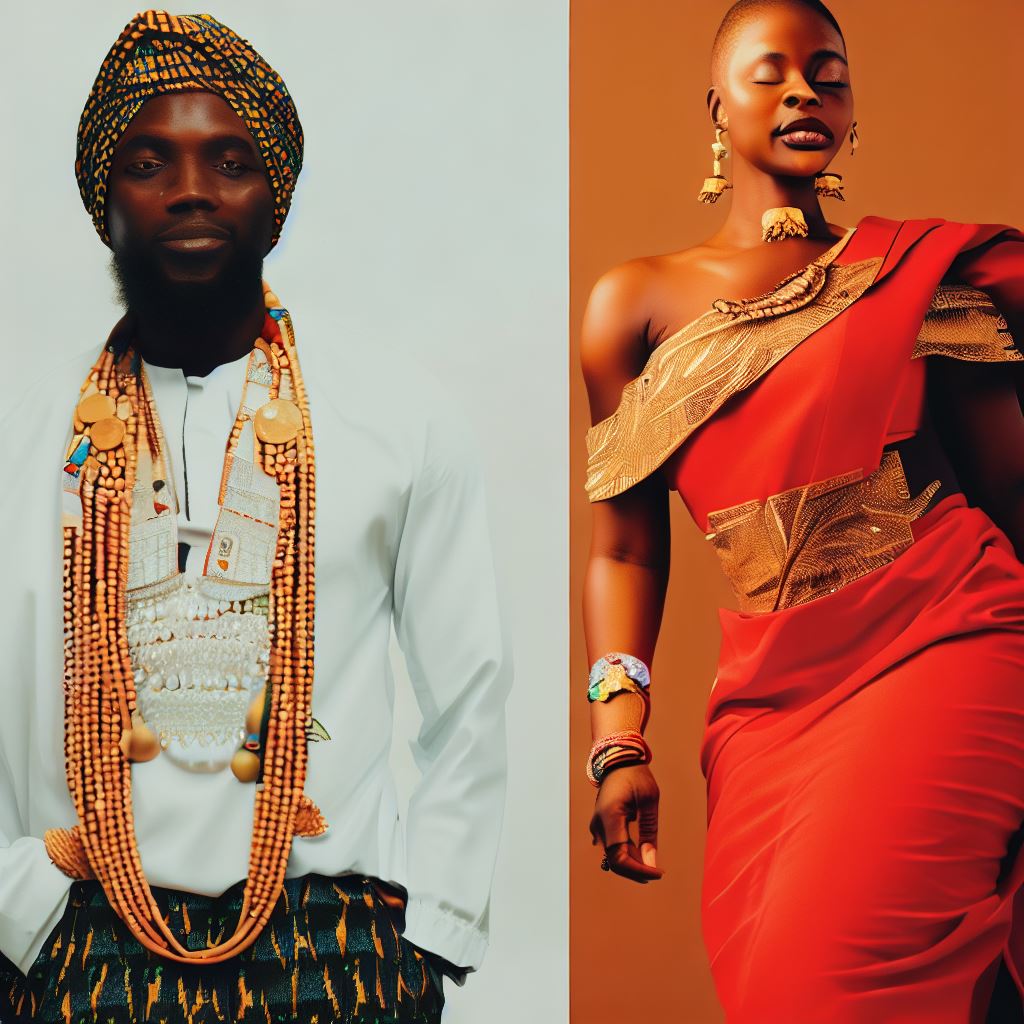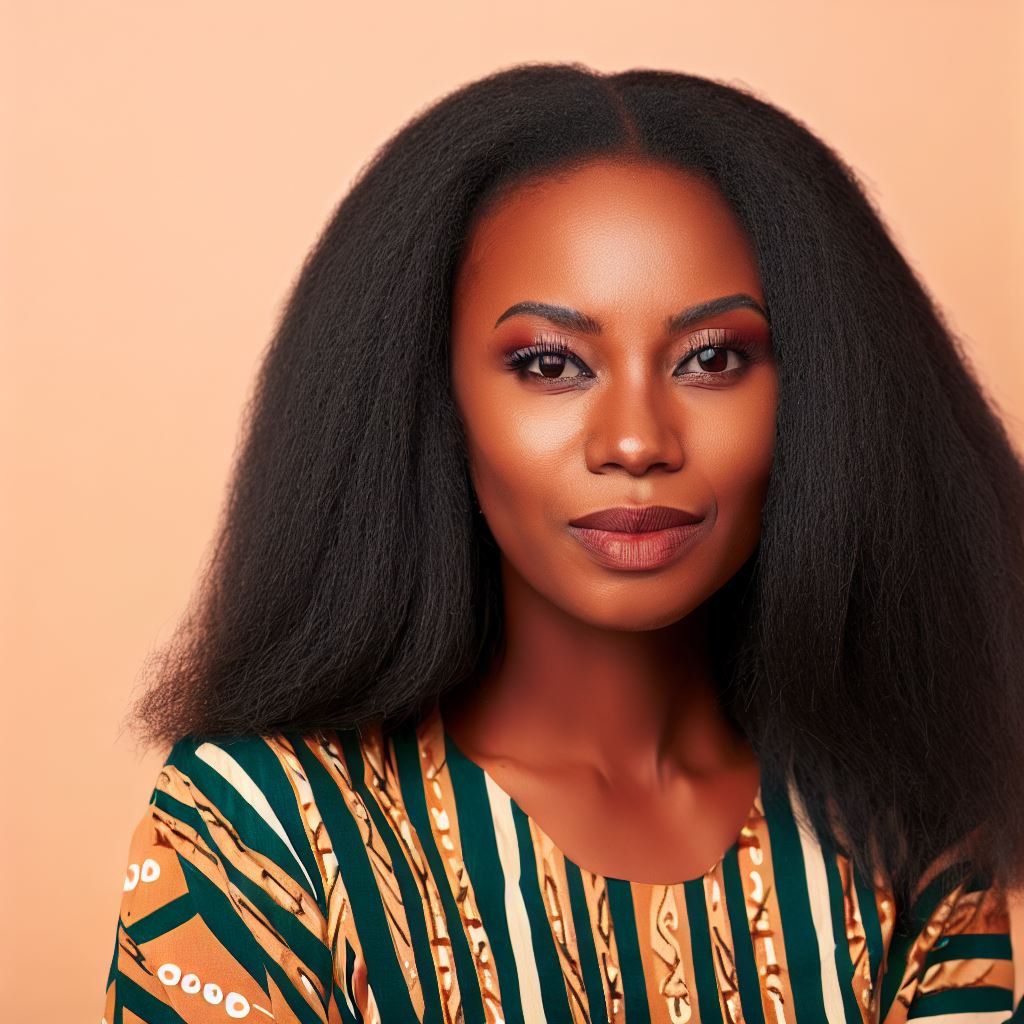Introduction
Nigeria’s design scene is a vibrant and rapidly growing industry that encompasses fashion, graphic design, architecture, and more.
Brief overview of Nigeria’s design scene
Nigeria’s design scene has gained international recognition for its unique blend of traditional African aesthetics and modern influences.
It is home to numerous talented designers and artists who are making their mark both locally and globally.
Importance of understanding the role of women in this context
Understanding the role of women in Nigeria’s design scene is crucial for several reasons. Firstly, women play a significant role in shaping the industry, both as designers and consumers.
Their perspectives and contributions are essential for a well-rounded and inclusive design community.
Furthermore, promoting gender equality in the design scene can lead to more innovative and diverse creations.
By giving women equal opportunities to showcase their talent and creativity, the industry can benefit from a wider range of design concepts and approaches.
Additionally, recognizing and acknowledging the achievements of women in Nigeria’s design scene can serve as a source of inspiration for aspiring female designers.
It can empower them to pursue their passions and break down societal barriers that may limit their opportunities.
Basically, Nigeria’s design scene is a dynamic and exciting industry that involves various design disciplines.
Understanding the role of women in this context is essential for the industry’s growth, creativity, and inclusivity.
By promoting gender equality and recognizing women’s contributions, the design scene can thrive and inspire future generations of designers.
Historical Perspective on Women in Nigerian Design
Throughout history, women in Nigeria have played a crucial role in the country’s design scene.
They have not only contributed to the development and evolution of Nigerian design but have also overcome numerous challenges in a traditionally male-dominated industry.
Evolution of Women’s Involvement in Design
- In the early years, women’s involvement in design was limited to traditional crafts and textiles.
- However, as Nigeria began to modernize, more opportunities opened up for women to showcase their design skills.
- With the advent of technology, women started to explore new areas of design such as graphic design and fashion.
- Today, Nigerian women are actively involved in various design fields, shaping the industry with their creativity and innovation.
Influential Female Designers Throughout History
- Grace Jones, a pioneering Nigerian designer, challenged societal norms and paved the way for future female designers.
- Zainab Ashadu, founder of Zashadu Bags, is internationally recognized for her exquisite handbags made from locally-sourced materials.
- Folake Folarin-Coker, the founder of Tiffany Amber, revolutionized Nigerian fashion with her fusion of traditional and contemporary styles.
- Ituen Basi, known for her unique use of Ankara fabric, has gained global acclaim for her bold and colorful designs.
- These women, among many others, have left an indelible mark on Nigerian design and continue to inspire future generations.
Challenges Faced by Women in the Industry
- Despite their significant contributions, women in the Nigerian design industry face several challenges.
- One major obstacle is the lack of equal opportunities and recognition compared to their male counterparts.
- Gender bias and stereotypes also persist, undermining women’s capabilities and hindering their career advancement.
- Additionally, balancing family and work responsibilities poses a significant challenge for many women designers.
- Nevertheless, these challenges have not deterred Nigerian women from pursuing their passion for design and creating beautiful, innovative works.
Essentially, women have always played a crucial role in Nigeria’s design scene, from traditional crafts to modern design fields.
Despite facing numerous challenges, Nigerian female designers have made significant contributions and continue to inspire future generations.
Their creativity and innovation have shaped the industry and put Nigeria on the global design map.
Read: A Guide to Building a Design Career in Lagos, Nigeria
Current Landscape of Women in Nigerian Design
The number of women in design schools and studios is on the rise, contributing diverse perspectives.
Emerging female design entrepreneurs are making their mark, inspiring others to pursue their creative visions.
High-profile female designers have achieved significant milestones, challenging preconceived notions and biases in the industry.
Women in Nigerian design are driving transformation and showcasing their immense talent, despite persisting challenges.
Design schools and studios witness a growing influx of women, enriching the field with fresh perspectives.
A surge in female design entrepreneurs demonstrates their ability to transform creative visions into thriving businesses.
High-profile female designers like Ituen Basi and Lisa Folawiyo have gained international recognition, elevating Nigerian design’s global standing.
Their accomplishments inspire aspiring designers and challenge societal biases against women in the industry.
Challenges such as gender-based discrimination persist but are gradually diminishing as women’s visibility and achievements grow.
Promoting inclusivity, mentorship programs, scholarships, and networking opportunities can empower women in the design industry.
Read: An Introduction to Costume Designing in Nigeria’s Film Industry
Intrinsic Contributions of Women in Nigerian Design
Women in Nigerian design offer unique creative perspectives, shaping innovative ideas and pushing boundaries.
Their feminine touch adds warmth and relatability to designs, resonating emotionally with a wider audience.
Gender diversity ensures inclusive outcomes, catering to diverse needs and preferences in Nigeria.
Women designers serve as role models, inspiring young girls to pursue creative passions and break stereotypes.
They preserve local arts and crafts, infusing traditional elements into designs, celebrating Nigerian cultural identity.
Read: Costume Design: Nigeria’s Soft Power in African Fashion
Cultural and Societal Factors Affecting Women in Nigerian Design
When it comes to the role of women in Nigeria’s design scene, cultural and societal factors play a significant role.
These factors greatly impact women designers in several ways, ranging from gender disparities and stereotypes in the industry to the impact of cultural expectations on women designers and the struggle to balance career and family obligations.
In order to fully understand the challenges faced by Nigerian women in the design industry, it is crucial to delve into these factors:
Gender Disparities and Stereotypes in the Industry
- Women in the Nigerian design scene often face unequal treatment compared to their male counterparts.
- Common stereotypes label women as less skilled or less capable designers, limiting their opportunities.
- Gender disparities in access to education and resources hinder the progression of women designers.
- Negative biases towards women in leadership positions undermine their authority and influence in the industry.
- There is a persistent lack of representation of women in key decision-making roles within the design sector.
Impact of Cultural Expectations on Women Designers
- Traditional gender roles and cultural expectations often dictate the roles women should play in society.
- The pressure to conform to societal expectations of marriage and motherhood can limit women’s career options.
- Cultural norms sometimes prioritize domestic responsibilities, leaving little room for women to focus on their design careers.
- Women are expected to prioritize family over professional aspirations, which can hinder their advancement in the industry.
- Cultural biases against women pursuing unconventional career paths discourage them from entering the design industry.
Balancing Career and Family Obligations
- Women designers face the constant challenge of balancing their professional lives with the demands of their families.
- The expectation to fulfill traditional gender roles often puts additional pressure on women to sacrifice their careers.
- Limited access to support systems such as affordable childcare further complicates the struggle to manage both career and family.
- Women often face scrutiny and guilt for prioritizing their careers over family obligations.
- The lack of flexible work arrangements and maternity policies in the design industry adds to the difficulties faced by women designers.
Overall, the cultural and societal factors affecting women in Nigeria’s design scene present significant barriers to their success and representation in the industry.
Gender disparities, stereotypes, cultural expectations, and the challenge of balancing career and family obligations all contribute to the struggle faced by women designers.
Addressing these factors requires a collective effort from both the industry and society at large.
By promoting equal opportunities, challenging stereotypes, supporting work-life balance, and providing resources and mentorship, Nigeria can foster an inclusive design industry that empowers and celebrates the contributions of women.
Read: Exploring the Impact of Digital Design in Nigeria’s Tech Boom

Delve into the Subject: Internships in Graphic Design: Opportunities in Nigeria’s Firms
Breaking Barriers and Empowering Women in Nigerian Design
Nigeria’s design scene is thriving with creativity and talent, and women have played a significant role in shaping this industry.
Women designers in Nigeria have broken barriers and made significant contributions, paving the way for others to follow.
In recent years, there has been a growing focus on empowering and supporting women in the design field, leading to the emergence of advocacy groups, support networks, and initiatives promoting equality and inclusivity.
Advocacy and support networks for women designers
Advocacy groups and support networks have played a crucial role in championing the rights and interests of women designers in Nigeria.
These platforms provide a space for women to share experiences, seek mentorship, and connect with like-minded individuals.
By creating a supportive community, these networks empower women to overcome challenges and seize opportunities.
They also serve as platforms for showcasing their work and raising their visibility in the industry.
Initiatives promoting equality and inclusivity
Recognizing the need for gender equality in the design industry, various initiatives have been established to promote inclusivity.
These initiatives focus on providing equal opportunities, resources, and recognition to women designers.
They organize workshops, seminars, and conferences dedicated to capacity building, skill enhancement, and knowledge sharing.
By addressing the specific needs and challenges faced by women in design, these initiatives foster an environment that encourages their growth and contributions.
Encouraging young girls to pursue design careers
One crucial aspect of empowering women in the design scene is ensuring that young girls are encouraged to explore and pursue design careers.
Initiatives and programs target school-aged girls, aiming to inspire and educate them about the possibilities and potential of design.
By breaking gender stereotypes and providing role models, these efforts help bridge the gender gap in the industry from an early age.
Engaging young girls in design experiences and mentorship programs fosters their creativity and passion, encouraging them to pursue successful careers in design.
In essence, the role of women in Nigeria’s design scene cannot be underestimated. They have been breaking barriers, advocating for their rights, and making significant contributions to the industry.
Support networks, advocacy groups, and initiatives promoting equality and inclusivity have emerged to empower women and create a more inclusive design community.
Encouraging young girls to pursue design careers from an early age sets the stage for a more diverse and vibrant future in Nigeria’s design industry.
Success Stories and Inspirational Figures
- Adebayo Oke-Lawal, founder of Orange Culture, is a trailblazer in the Nigerian fashion industry.
- Lisa Folawiyo, owner of luxury fashion brand Jewel by Lisa, has gained international acclaim.
- Amaka Osakwe, creator of the fashion label Maki Oh, has dressed influential figures like Michelle Obama.
- Zainab Ashadu, founder of Zashadu, is known for her exquisite leather handbags and accessories.
- Ituen Basi, known for her vibrant and colorful designs, has showcased her collections in various fashion shows.
Profiles of Influential Women in Nigerian Design Scene
- Adebayo Oke-Lawal: He revolutionized Nigerian menswear by blending traditional and contemporary styles.
- Lisa Folawiyo: She incorporates traditional West African textiles into modern designs, creating a unique aesthetic.
- Amaka Osakwe: Inspired by Nigerian culture and traditions, she creates clothes that empower women.
- Zainab Ashadu: Her brand focuses on sustainability and supporting local artisans in Nigeria.
- Ituen Basi: Known for her use of Ankara fabric, she celebrates African prints in her designs.
Their Achievements and Contributions
- Adebayo Oke-Lawal’s Orange Culture has been featured in Vogue, gaining international recognition.
- Lisa Folawiyo’s collaboration with J.Crew brought African fashion to a global audience.
- Amaka Osakwe has been invited to showcase her designs at major fashion weeks around the world.
- Zainab Ashadu’s sustainable approach has received praise and is inspiring the fashion industry.
- Ituen Basi’s designs have been worn by celebrities and featured in prominent fashion magazines.
Lessons Learned from Their Experiences
- Passion and authenticity are key to success in the Nigerian design scene.
- Embracing and celebrating Nigerian heritage can create unique and captivating designs.
- Overcoming challenges and breaking societal norms can make a significant impact.
- Supporting local artisans and fostering sustainability can lead to a more ethical industry.
- Collaboration and global exposure are crucial for Nigerian designers to thrive in the international market.
Conclusion
Understanding the role of women in Nigeria’s design scene is crucial for the industry’s growth.
By recognizing their contributions, we can create a more inclusive and diverse design community.
To support and empower women in the industry, we must provide equal opportunities and resources.
Organizations and individuals should actively promote and mentor aspiring female designers.
Collaboration and networking events can foster a supportive environment for women in Nigerian design.
The future of women in Nigerian design looks promising, with the potential for groundbreaking innovation.
Through increased representation and opportunities, women can shape and influence the industry.
It is crucial to continue advocating for gender equality and breaking down barriers.
Together, we can create a design landscape in Nigeria where women’s contributions are celebrated and valued.
Let’s work together to support, empower, and uplift the women in Nigerian design.
Only through collective efforts can we ensure a brighter and more inclusive future for everyone in the industry.




